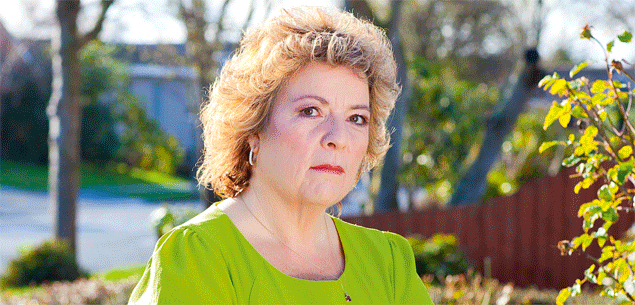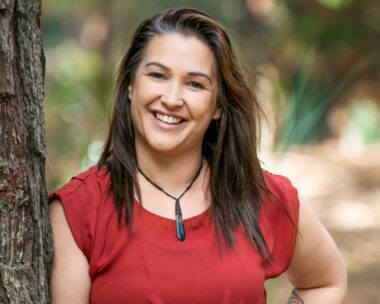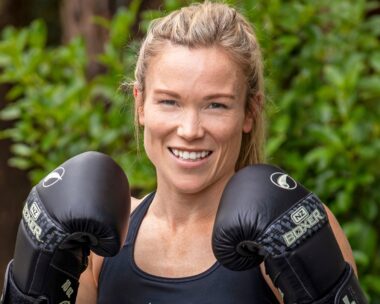Cheryl Tóvizi was always protective of her daughter Alexsis. A “natural born helper”, young mum Alexsis was always the first to rescue a child being bullied or a distressed animal. Cheryl recalls once having to physically restrain her young child from wading into the Avon River, Christchurch, to rescue a duckling in trouble.
Last Wednesday, Nikki Roper was sentenced to life imprisonment with 14½ years non-parole for Alexsis’ murder, and Cheryl has made the difficult decision to share her heartbreaking story with the Weekly, in the hope that others will learn from Alexsis’ death and take protection orders seriously.
“I’m still shaking – I don’t really know how I’m feeling, but I’m glad he will be in prison for a long time,” Cheryl said, just minutes after the sentence was handed down to Roper, who was heavily shackled at Christchurch’s High Court.
“I was directly opposite him when I gave my victim impact statement… I wanted him to know the impact of what he did.”
Roper – who has more than 60 criminal convictions as an adult – had already received two previous sentences for choking 21-year-old Alexsis. After his first violent attack on her in May 2009, Roper was sentenced to 15 months in prison, but continued to write, text and phone Alexsis. In response, she took out a non-contact protection order against him before he was released.

After a second incident in September 2010, Roper was convicted and sentenced to a month in prison. He was released early on both occasions. But, despite his history of violence, Alexsis was convinced she could help him.
“As her mother and supporter, it’s my job to give Alexsis a voice,” says former senior IT manager, Cheryl (53).
“She was studying to be a social worker – she wanted to help men in prison rebuild their lives. She would have been perfect at helping others, so I’m doing this for her, to remind people that protection orders are there for a reason. If my speaking out stops just one other person from having their lives ruined, it’s worth it.”
Alexsis was embarking on a new life when Roper murdered her in her home, with her three-year-old son present. She was studying hard, and had finally told Roper she couldn’t see him any more.
“Since they’d met, Alexsis had tried to help Roper because he’d had a rough childhood – his mother left him on a doorstep when he was eight,” recalls Cheryl, who still refers to Alexsis in the present tense, and constantly touches the ruby pendant she gave Alexsis on her 16th birthday.

Nikki Roper, who has an Alexsis tattoo under his left eye.
“He was very proud of the number of criminal convictions – he was very open about it.”
Alexsis believed Roper’s declaration that he wanted to change, and the friendship soon evolved into a relationship.
But it wasn’t long before Cheryl began to have serious misgivings.
“He loved her too quickly – within weeks he was calling her ‘my princess’ and saying he wanted to marry her,” says Cheryl.
“In hindsight, it was clear he was a very damaged individual, but I wanted to give him a chance.”
Despite Cheryl trying her best to help Roper, at one point even working with him on his CV to increase his chances of getting a job, he began to exhibit controlling behaviour. He’d often take Alexsis’ cash card, house and car keys, and cellphone after arguments, and Alexsis told Cheryl that Roper didn’t want to see Cheryl, “because she hates me”.
“I didn’t hate him – I just didn’t like him because he was using Alexsis,” insists Cheryl.
“Now I realise thathe was trying to create separation between us, to isolate her from her family.”
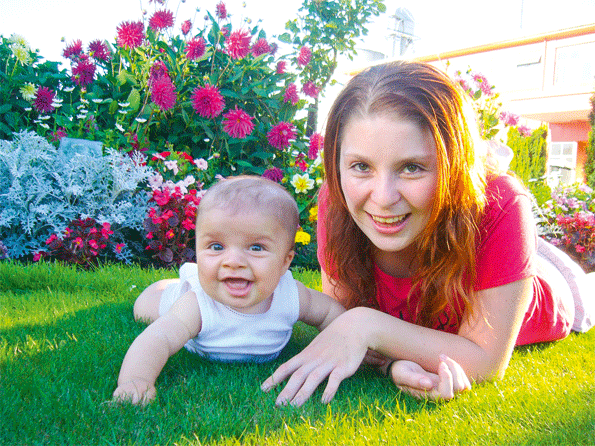
Alexsis with her son.
Cheryl admits Alexsis was no angel.
“The defence in court tried to say she was a chronic alcoholic, and tried to kill herself by sticking her head in a pot of water – I don’t think that’s even possible,” scoffs Cheryl, in disbelief.
“She was a typical teenager – like most of the other kids in the area,” she says.
The court threw out the defence’s claims and, at sentencing last week, Justice Forrest Miller stated: “From my perspective, the prosecution case was overwhelming.”
While only Roper knows the true details of the events surrounding the murder, the court found that Alexsis was killed either by strangulation or drowning, in the early hours of Monday, December 6. Roper then took Alexsis’ son to the child’s great-grandparents, saying she had “done a runner”. For the next three days, he gave Cheryl different accounts of where her daughter was.
“First, he said she’d gone to Auckland, then that she’d gone to the coast, then on to Auckland, but I couldn’t call her as he had her phone. I knew he was lying – but not for one second did I think he had killed her. Who would think that? No-one would think that.”
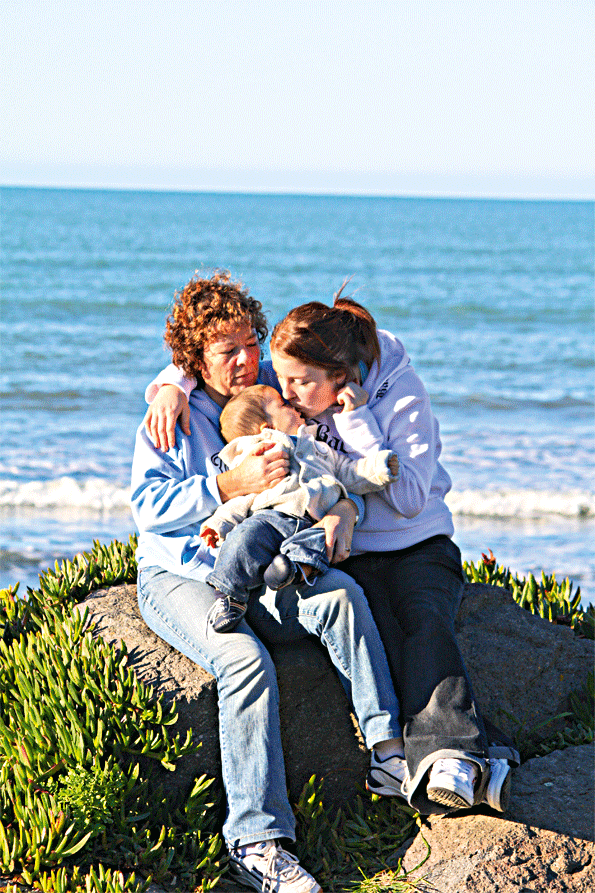
Even Alexsis missing Cheryl’s birthday on Tuesday, December 7, didn’t ring alarm bells.
“We’d had a discussion the weekend before about Roper – I wanted her to ring the police, to enforce the protection order, but she kept saying, ‘What’s the point? The police are so busy dealing with the earthquake – they aren’t going to want to hear from me, just because Roper’s sending me a text to say “hello,’’ recalls Cheryl, her raw emotion agonisingly plain to see.
“Then, on the Monday, I’d found out she had seen Roper the night before and I was really cross with her. But, for the first time in a long time, I decided not to go straight to her and get involved with all the drama, and just have a nice day. I was being made redundant, the earthquakes had upset us all – I just expected her to turn up and ask what my problem was.”
It wasn’t until Wednesday, December 8, that Cheryl asked the police to do a welfare check.
“I thought you had to wait 24 hours to report a missing person, and that welfare checks were just for neighbours worrying about elderly relatives, that kind of thing,” says Cheryl, who had knocked on her daughter’s door, but got no answer.
On December 9, police entered the flat.
“That’s when they found her body, at home in bed, covered with a blanket.”
Roper had stolen Alexsis’ cash card and emptied her bank account, leaving Alexsis’ son with just 14 cents. Despite her heartbreak, Cheryl is determined her daughter’s death won’t be in vain.
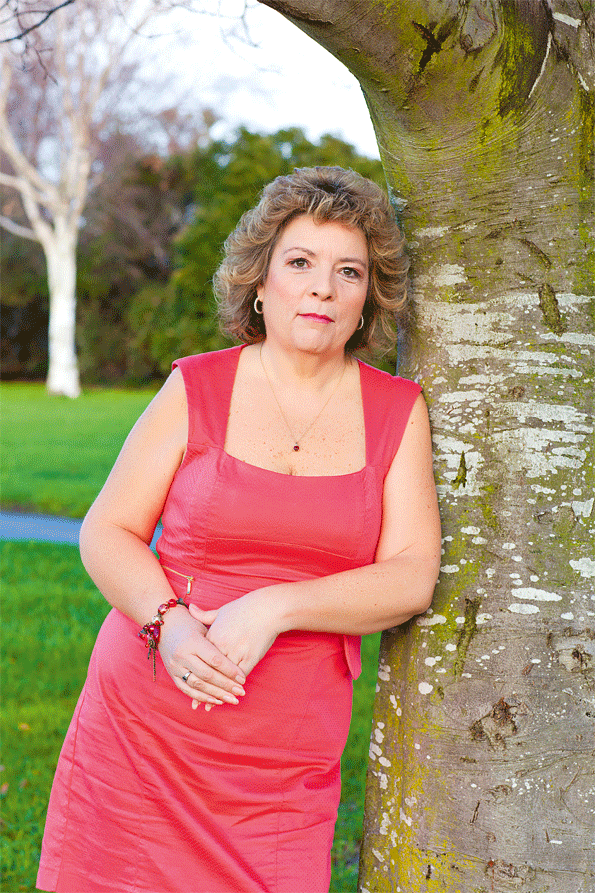
“When Alexsis’ son was born, I promised that I would help her to help him be the best he could be, and I will do that,” says Cheryl, who has full legal guardianship of her grandson, but is keeping his name private to protect him. She is tortured by the “what ifs?” surrounding her daughter’s death, despite Justice Miller’s statement: “No mother could have done more than you did to keep your daughter safe.”
“What if I had insisted on her reporting his breaches of the protection order earlier? If I’d realised how deeply he was manipulating her, or helped her recognise the signs of non-physical abuse earlier? I can’t stop thinking what I could have done, how I could have changed things,” says Cheryl.
“What if I’d broken a window and got in on the Wednesday? At least I’d have been able to kiss my daughter goodbye. By lying to me for three days, Roper took that away from me.”
Cheryl has told her grandson his mother is in heaven and won’t be returning. But while she can’t change this story, she hopes telling hers will change someone else’s, and protection orders are more strongly enforced in the future.
“Because Alexsis had survived two previous assaults, she thought she could handle it – she was always telling me not to worry,” Cheryl says.
“I told her the police were the ones who should handle it, but she was so sure it’d be okay. Now, it never will be.”
